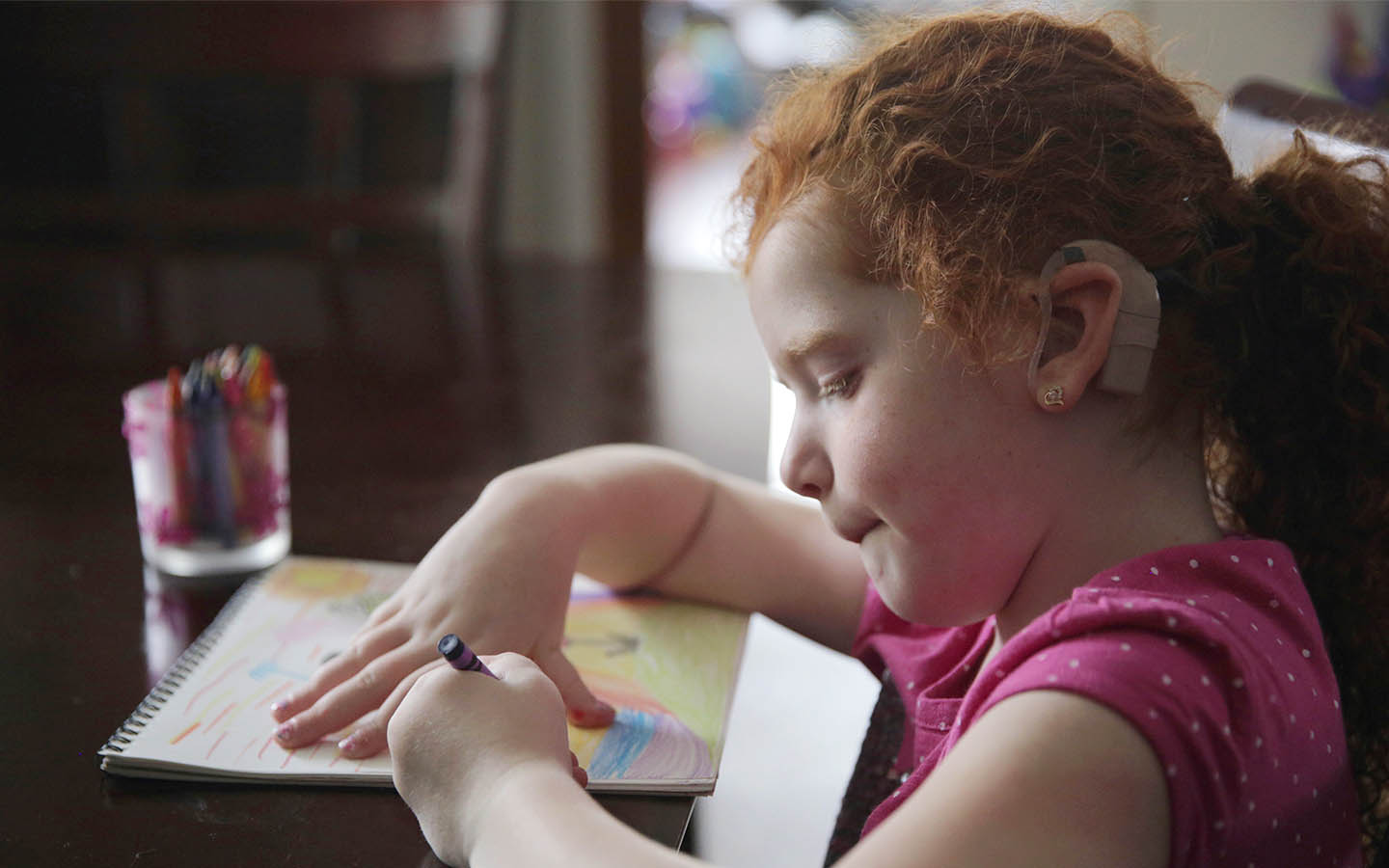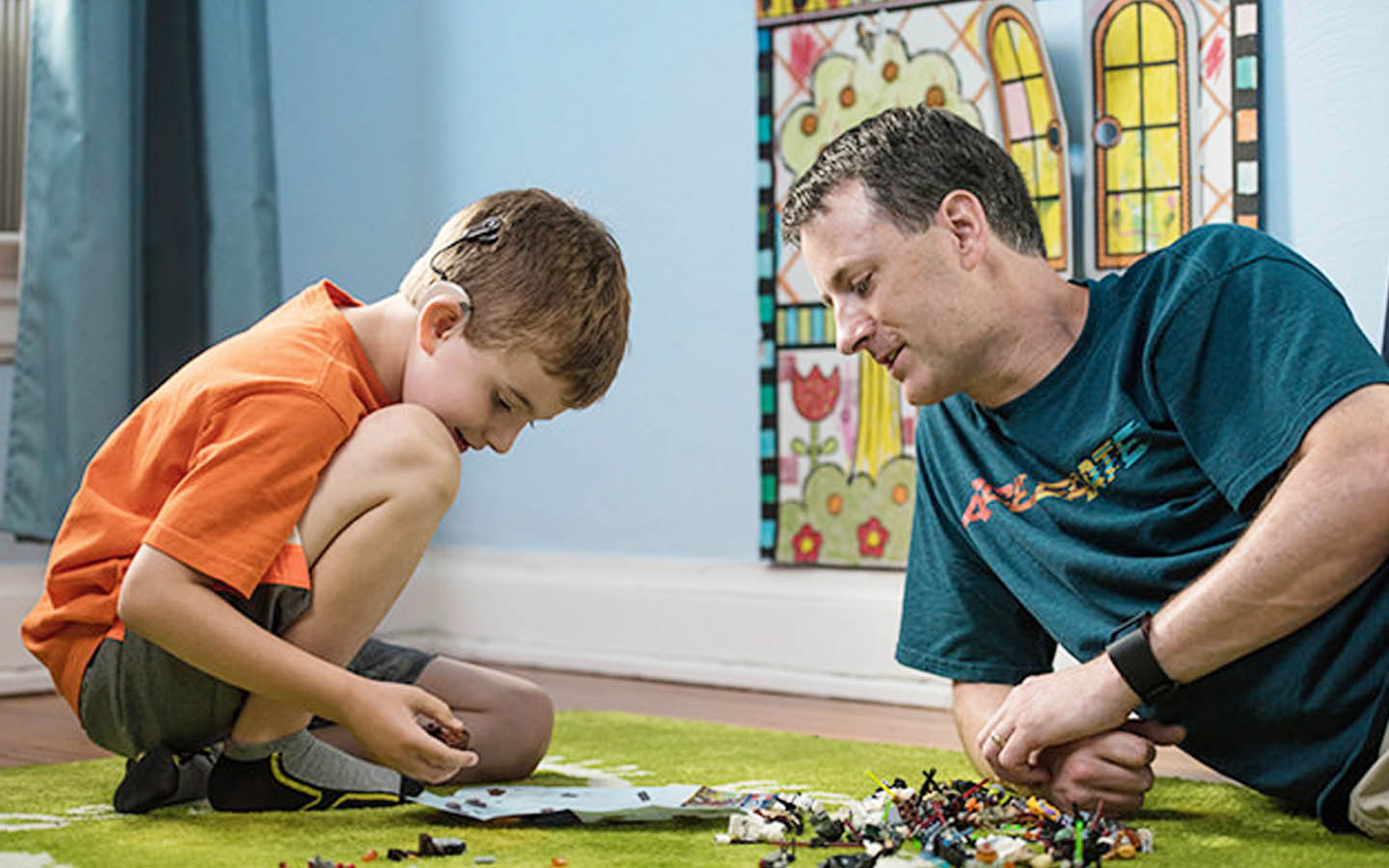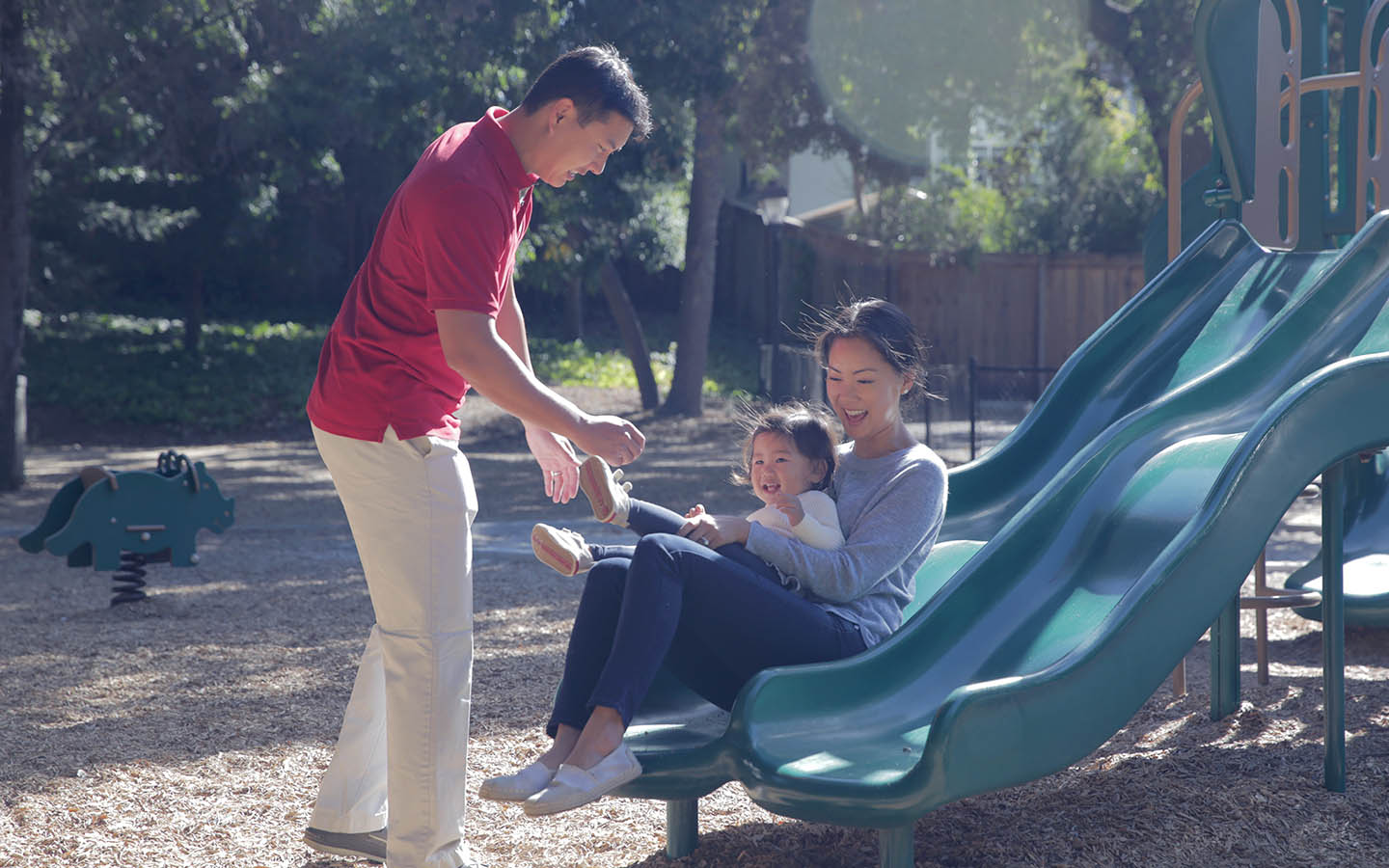Signs of hearing loss in children
If you think your child has hearing loss there are certain things you should look for.

What you'll find on this page
- The signs of hearing loss in children.
- Typical speaking milestones for children.
The signs of hearing loss aren't always obvious. Here are some things to look for, plus a guide to hearing and speech development in young children.
"Michael was about three months old, and he was in his playpen. We were playing with some toys, I had a squeaky ball with me and I was making a loud noise right next to his head. I noticed that he didn't move at all to the sound."*1
- Robert, father of Michael, Cochlear™ Nucleus® recipient
In most cases a child's hearing loss is picked up through testing soon after birth. Other times, it is more difficult to identify.
You may not know if your child has hearing loss — especially if they haven't started talking. That's why it's important to understand the signs and symptoms now, so you can be ready to take action.
Some possible signs of hearing loss in an infant or toddler
-
Does not react to loud sounds.
-
Does not seek out or detect where sound is coming from.
-
Has stopped babbling and experimenting with making sounds.
-
Still babbles but is not progressing to more understandable speech.
-
Doesn't react to voices, even when being held.
Ages and stages that children typically learn to listen and speak1
Knowing more about hearing and speech development milestones can be helpful. Use these guidelines to better understand your child’s progress:
|
Age |
Hearing and understanding |
Speech and language |
|
Birth to three months |
|
|
|
4-6 months |
|
|
|
7 months-1 year |
|
|
|
1-2 years |
|
|
Remember, some children with normal hearing may reach those milestones later. If you have any concerns you should speak to your child's health care professional as soon as possible.
Some possible signs of hearing loss in a school-aged child
-
Does not follow simple commands, such as "get your shoes" or understand simple directions.
-
Is easily frustrated or experiences communication breakdowns.
-
Is falling behind with speech and communication skills.
-
Relies on lip-reading.
-
Is exhausted at the end of school from concentrating to understand speech.
What to do if you think your child has hearing loss
The first step is to see your child’s doctor and let them know about your concerns. He or she may check your child’s ears and can recommend a course of action.
If traditional hearing aids can't help your child, they may benefit from other hearing solutions, such as cochlear implants and bone conduction implants.
Find a hearing implant specialist near you
Disclaimer
Please seek advice from your health professional about treatments for hearing loss. Outcomes may vary, and your health professional will advise you about the factors which could affect your outcome. Always follow the directions for use. Not all products are available in all countries. Please contact your local Cochlear representative for product information.
For a full list of Cochlear’s trademarks, please visit our Terms of Use page.
*1 Views expressed are those of the individual. Consult your health professional to determine if you are a candidate for Cochlear technology.
References
- Speech and Language Developmental Milestones [Internet]. NIDCD. 2018 [cited 13 September 2018]. Available from: https://www.nidcd.nih.gov/health/speech-and-language





